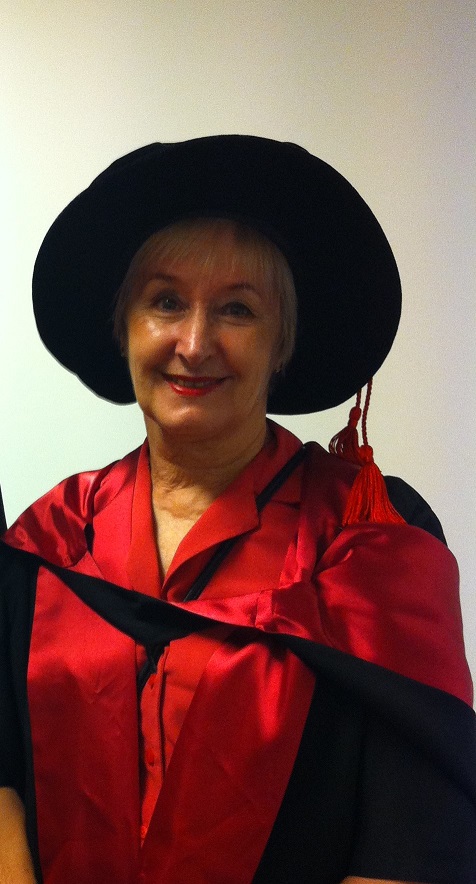Day 3 :
Keynote Forum
Cathy Dickson
Western Sydney University , Australia
Keynote: Not goldilocks and the three bears: Producing quality video for skill and knowledge development
Time : 09:30-10:10

Biography:
Dr Cathy Dickson has extensive experience in teaching in the online environment and is committed to providing a quality learning experience for her students. As Head of Program for a post graduate suite of courses in child and family health Cathy leads a team of colleagues who design an engaging and active learning environment that has proven student satisfaction outcomes.
Abstract:
Since the early 1980s the use of video in nurse education has become ubiquitous. Certainly the move towards online education and the use of mobile technology to learn anywhere anytime, has urged nurse educators to seek innovative and engaging ways to assist their students develop knowledge and skills. Skills practice videos allow for students to view and review the skill at their own pace and drill down to the minutia by pausing when required. With the number of nursing skill based videos available on free video sharing websites such as YouTube there is a vast array to choose from. However, the purpose, quality and authentic learning of what is on offer might not meet course learning outcomes. The benefit of designing and producing a custom made video is that the three domains of learning (cognitive, affective and psychomotor) can be addressed and that alignment to the unit learning outcomes is realized. What nurse educators need is a best practice guide to developing quality video for learning. This presentation will follow the preproduction, production and post production journey of the development of a child oral health skill video for post graduate nursing students from a best practice perspective.
- Nursing Education
Location: Prague, Czech republic
Session Introduction
Nurten OZEN
Istinye University, Faculty of Health Science, Istanbul, Turkey
Title: Assessing the attitudes and behaviors of nursing students according to Caring Nurse-Patient Interaction scale

Biography:
Nurten Ozen has completed his PhD at the age of 33 years from Gulhane Military Medical Academy School of Nursing in Turkey. She is Asst. Prof. at Istinye University Faculty of Health Science in Istanbul, Turkey. She is interested in intensive care unit infections, nutrition in intensive care, hemodialysis, dialysis adequacy, vascular access in hemodialysis, evidence based practices. She has published more than 10 papers in reputed journals and has been serving as an editorial board member.
Abstract:
The aim of this study is to assess the attitudes and behaviors of nursing students in their clinical experiences in terms of nurse-patient interactions. It is a descriptive study that has been conducted in a School of Nursing from November to December 2013. A sample of 200 nursing students who have consented to participate in the study has been used. Caring Nurse –Patient Interaction scale (CNPI) and questionnaire complied formed by researchers are used as a means of data collecting. It is observed that there is a direct positive correlation between the CNPI scores and the attitudes and behaviors of nursing students. An analysis of the scores from the CNPI shows that total score for the importance is 337.63±23.18, for competency 293.41±34.99, for realism 290.85±42.11. When the scores from the CNPI converted to percentages it is observed that that among the attitudes and behaviors in clinical applications that are presented in CNPI the nursing students feel the importance level as %96, realism of application as %83 and the level of their own competence as %84. Nursing students who stay overnight at the hospital or accompany patients, and students who have clinical experiences in surgical clinics are seemed to be less susceptible to problems in their interactions with patients and they were observed to display more positive interaction skills. It is proposed that nursing programs should be improved as to provide the students with necessary skills to constructively and effectively interact with the patients.
Susan Gledhil
Australian Catholic University, Australia
Title: Educating nurse leaders who will drive innovation and practice improvement

Biography:
Dr Susan Gledhill is a registered nurse, registered midwife and academic. Her current position is senior lecturer and postgraduate course coordinator in the School of Nursing, Midwifery & Paramedicine at the Australian Catholic University (Brisbane Campus) where she has responsibility for postgraduate course coordination, strategic involvement in curriculum development and working in close collaboration with industry partners. Susan lectures in postgraduate units that include ‘Leadership in Health Care’ and ‘Quality and Safety in Health Care’, among others.
Susan’s professional experience includes ten years of nurse management, research in the areas of healthy ageing, pain management and dementia and prostate cancer research. Susan’s professional experience also includes policy development and research with the Queensland Nursing Council and health practitioner regulation with the Australian Health Practitioner Regulation Agency (AHPRA).
Abstract:
Nurse leaders are required to inspire and lead their staff and guide them through an often challenging process of questioning, exploring possibilities, driving fresh ways of thinking, taking risks and collaborating with others, including consumers. Successful change management for practice improvement requires “a systematic approach to test new ideas and innovation … which are often based on the expectations of users of the service, as well as on prevailing socio-economic circumstances and policies” (Gopee & Galloway, 2014, p. 145).
Innovation for practice improvement is not a new phenomenon and history demonstrates the significant effect that a health practitioner can have, not only on improving practice and driving innovation, but also in demonstrating effective leadership skills (Barr & Dowding, 2016; Kelly, 2012). Contemporary challenges, and opportunities, for nurse leaders include integrated health care, regulatory factors, consumer expectations, building coalitions, workforce diversity and safety and quality improvement initiatives.
The question is therefore, what are the current challenges in educating potential nurse leaders who will model good governance, lead practice improvement and drive sustainable change? Innovative educational strategies that will be discussed include broad-based curriculum with exposure to multidisciplinary peer groups, supporting content delivery with technology, basing content on contemporary real-world situations and consolidating a ‘systems thinking’ approach to leadership.
Mohammed Alkatan,
Department of Physical Education & Sports, College of Basic Education Public Authority for Applied Education & Training, Kuwait.
Title: Daily Protein Intake With and Without Protein Supplementation in Kuwaiti Male Bodybuilders

Biography:
Mohammed Alkatan has completed his PhD at the age of 32 years from the University of Texas at Austin. He is an assistant professors at Public Authority for Applied Education & Training- Department of Physical Education & Sports. He has published more than 10 papers in reputed journals
Abstract:
Introduction: Resistance training is becoming increasing popular in the Middle East, especially in Kuwait. Adequate protein intake is essential to achieve a positive net muscle protein balance and increase skeletal muscle protein synthesis. In addition to using protein supplements such as whey and casein protein, bodybuilders consume more protein in their diet than is necessary to meet training-dependent protein requirements. Thus, the purpose of the present study was to determine the daily protein intake of Kuwaiti male, collegiate recreational bodybuilders and discern the type and timing of supplementary protein intake. Methods: Nineteen Kuwaiti male, collegiate recreational bodybuilders volunteered for the study. All subjects completed a 24-hour dietary recall to estimate total daily protein with and without protein supplement consumption. Results: Using protein supplements increases daily protein consumption (148.6 g/day) compared with protein from food sources alone (118.6 g/day). The preferred protein supplements were whey protein, used by 84.2% of the subjects, and casein protein, used by 15.8%. In regards to the timing of post-exercise protein supplement consumption, of the 19 subjects studied, 10 (53%) supplemented 1 hour after training, 6 (31%) supplemented 2 hours after training, and 3 (16%) supplemented >2 hours after training. Conclusion: Kuwaiti male, collegiate recreational bodybuilders’ combined protein intake from food sources and protein supplements do not exceed recommended levels. Additionally, protein consumption would remain in the recommended range should bodybuilders fail to consume their daily protein supplement, suggesting that muscular hypertrophy may not be impaired.
